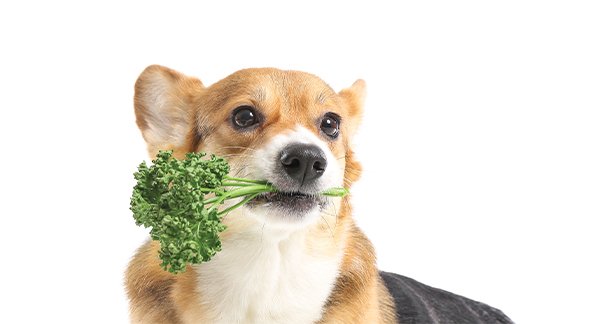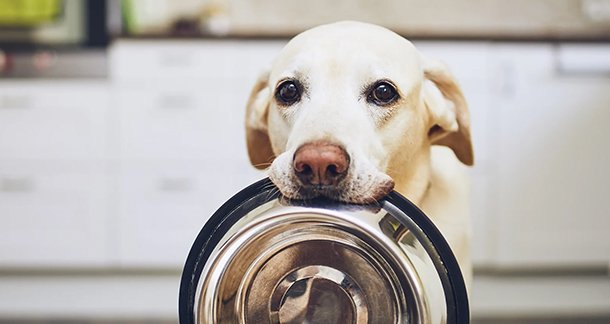Health consciousness is increasing, not only among people but for their pets too. This is where plant-based diets enter the scenario and change everything. It prioritises plant-derived ingredients over traditional meat-based options and claims numerous health benefits. Plus, their ethically good image makes a smoother path for them to grab their place in the industry. Recent studies have shown that well-formulated plant-based diets can meet the nutritional needs of dogs and cats.
So, getting aware of its benefits, challenges, and scientific evidence is essential to including it in your pet’s regular diet. Let’s dive in.
Health Benefits of Plant-Based Diets
Plant-based diets undoubtedly have a myriad of health benefits for pets, particularly dogs. This is to improve overall health and well-being and not just to fulfil a particular nutritional deficiency. You can notice that their common health disorders have been reduced if they have this diet regularly. Pet owners doing the same reported fewer issues related to gastrointestinal and ocular health and their hypoallergenic nature makes them suitable for sensitive pets as well.
More than that, their high fibre content helps improve digestive health and so promotes regular bowel movements and gut health. Overweight animals can have it to lose their weight and you will also notice an improvement in energy in their daily activity. Plus, the risk of many diseases like obesity, diabetes, and certain types of cancer can also be reduced if plant-based diets are eaten in a balanced way. All these benefits together contribute to a longer and healthier life for pets.

Key Health Benefits:
- Reduced gastrointestinal disorders.
- Improved nutrient absorption.
- Lower incidence of obesity-related diseases.
Scientific Evidence
Recent studies have found much evidence in favour of plant-based diets. For instance, a recent study in 2023 at the University of Guelph found that dogs maintained positive clinical and nutritional outcomes after getting this diet continuously for a year. For this, they focused on 61 dogs and put them on a nutritional vegan diet, which showed no adverse health effects compared to their meat-fed counterparts.
On the other hand, in a 2022 survey, owners reported fewer health issues in pets fed this diet as compared to those on traditional meat diets. This research aligns with findings from Earth Animal, which also indicate something like improved gut health and overall vitality. So, all these studies support the idea of diet in your pet’s life, which will be enough for long-term health without compromising their nutritional needs.

Nutritional Considerations
You should make sure that the diet is nutritionally complete and balanced while transitioning to a plant-based diet. Remember that dogs are omnivores by nature and can thrive on both animal and plant sources if formulated properly. Protein, vitamins, and minerals are some of the essential nutrients you should take care of.
Commercially available plant-based pet foods that meet the standards set by organisations like AAFCO contain all the required ingredients. These products will be enough to fulfil your pets’ daily needs. Protein sources such as lentils, quinoa, and peas are included in these kinds of foods to complete the amino acid profile. Plus, you can opt for some additional supplements like vitamin B12 and omega-3 fatty acids to maintain overall optimal health.
Still, consulting with veterinarians or pet nutritionists can help you make better decisions accordingly while transitioning the diet.
Environmental Impact
If you are adopting a plant-based diet, it is also impacting the environment positively while improving your pet’s health. This is because animal agriculture is a major contributor to greenhouse gas emissions, which require land and water resources and also pollute the environment through fertilisers and waste. That’s why it is a good way to reduce your pet’s card footprint too.

Even small changes like feeding pets plant-based meals one or two days a week can help reduce environmental impact. So, pet parents can play a huge role in combating climate change. Many pet manufacturers are already shifting to sustainable alternatives containing plant ingredients. This happened due to increased awareness of the environmental consequences of meat production.
|
Environmental Impact Comparison |
Meat-Based Diet |
Plant-Based Diet |
|
Greenhouse Gas Emissions |
High |
Low |
|
Land Use |
Extensive |
Minimal |
|
Water Consumption |
Significant |
Reduced |
Challenges and Considerations
Even after having numerous health benefits, a plant-based diet comes with potential challenges that you can’t ignore. A major concern is to make sure that pets receive all necessary nutrients without relying on animal products. This is because some pets are allergic to dietary changes and require mixed feeding approaches. Plus, animal diets offer a complete nutritional profile, which cannot be fulfilled by plant-based diets alone without any supplements. So, owners should understand why selecting only high-quality commercial products is mandatory rather than attempting homemade diets without proper guidance. You cannot make something full of all the nutrients on your own without any proper measurement resources.
More than that, some owners are also concerned about its viability and believe that their pets need meat for optimal health. This misconception can also be fixed with proper information and well-researched data.
Conclusion
Opting for a plant-based diet for your pet can be a better decision if you can optimise it better with their regular day-to-day life. Plus, there is scientific evidence as well, which gives confidence that it won’t end up as misery and can be a reason for your pet’s long-term health. As more high-quality commercial options become available, it will be easier to make people shift to these diets.
Overall, it’s obvious it promotes better health for our furry friends, but more than that, it contributes positively to our planet’s well-being. Still, pet owners are advised to consult with veterinarians when considering dietary changes because requirements can be different according to your pet.

